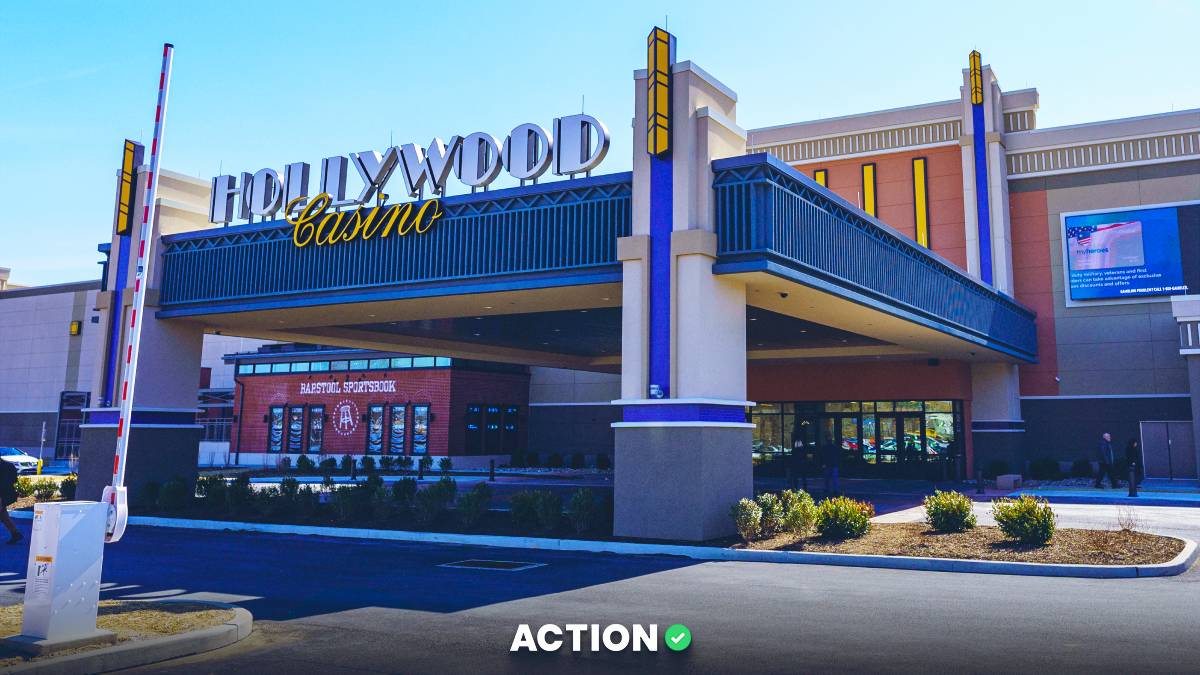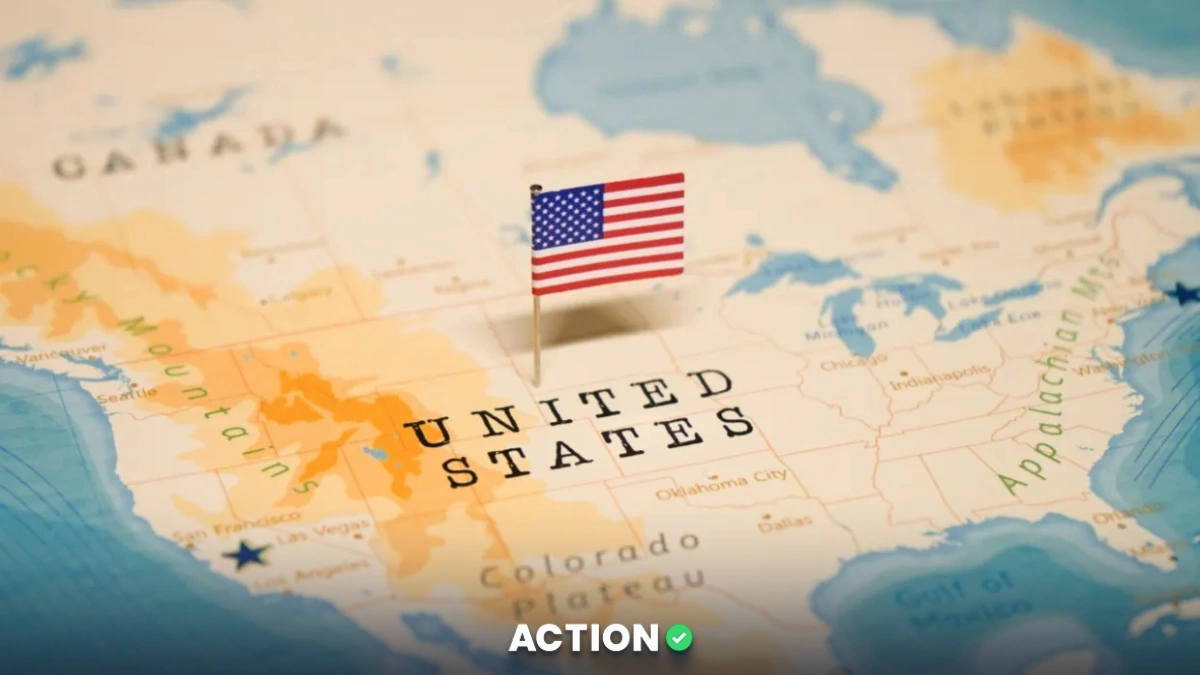The Keystone State remains a key player in the gaming industry.
The Pennsylvania Gaming Control Board (PGCB) reported a big achievement in May 2025: gaming revenue for the month went over $600 million for the first time. The total was nearly $602 million, marking an increase of almost 16% compared to May 2024.
Hollywood Casino at Penn National Race Course led the way, generating over $107 million in May, while Valley Forge, Parx, and Rivers Casino Philadelphia also did well.
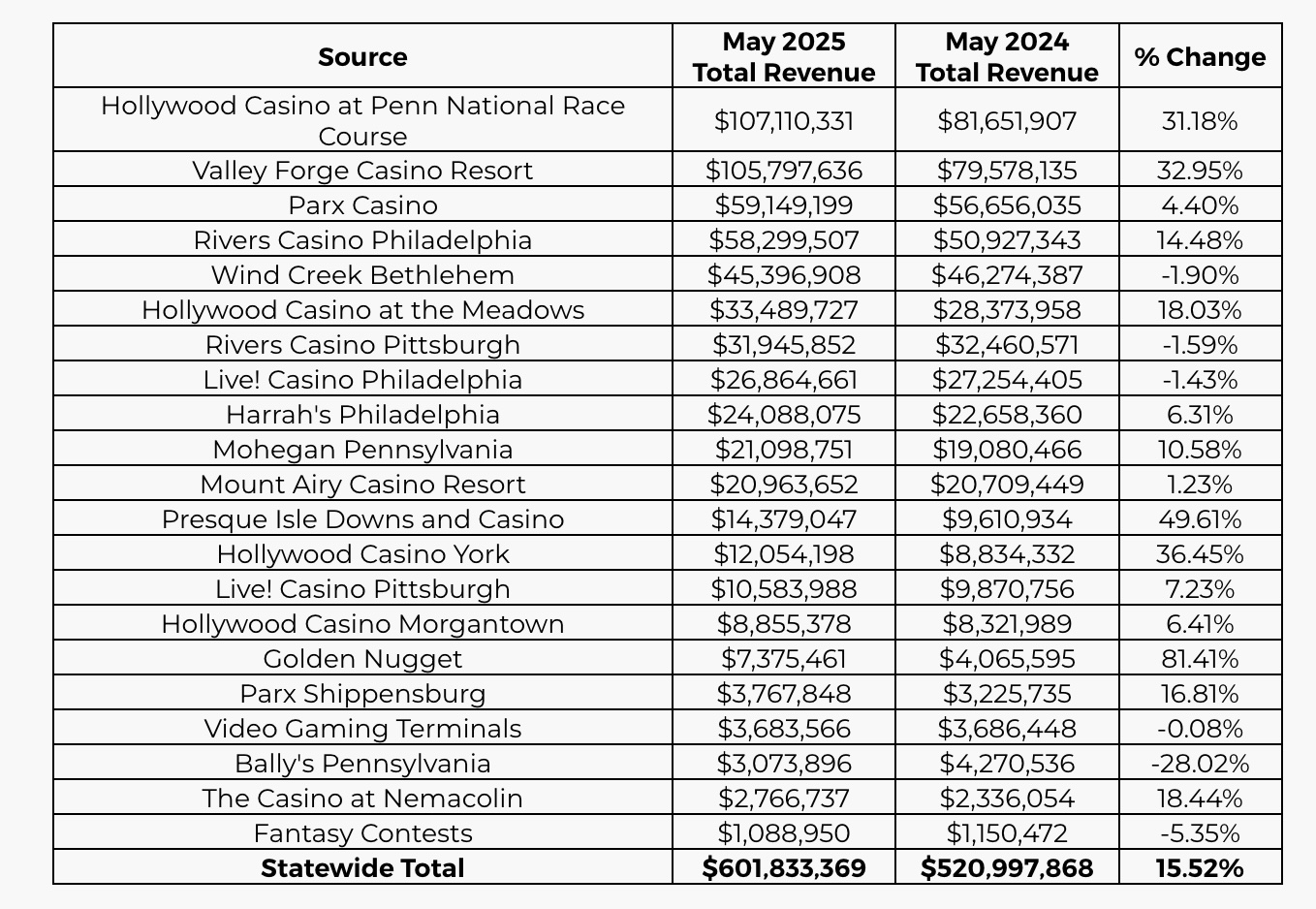
The Growth of Pennsylvania Gaming Revenue Since 2020
Pennsylvania's gaming industry has experienced exponential growth since 2020, driven by diverse offerings such as casinos, sports betting, and online gaming. The PGCB oversees these operations and ensures the industry's health and compliance. Here's a snapshot of the industry's growth:
- 2020: The COVID-19 pandemic caused disruptions, leading to temporary closures of land-based casinos. However, online gaming gained traction, providing a new revenue stream.
- 2021: The industry rebounded with the gradual reopening of physical venues, supported by robust performances in online gaming and newly legalized sports betting.
- 2022-2024: Continuous expansion with innovations in gaming technology and increased acceptance of online gambling. Annual revenue steadily climbed, contributing to significant tax revenue.
Key Drivers Behind the May 2025 Revenue Surge
Casino and Online Gaming
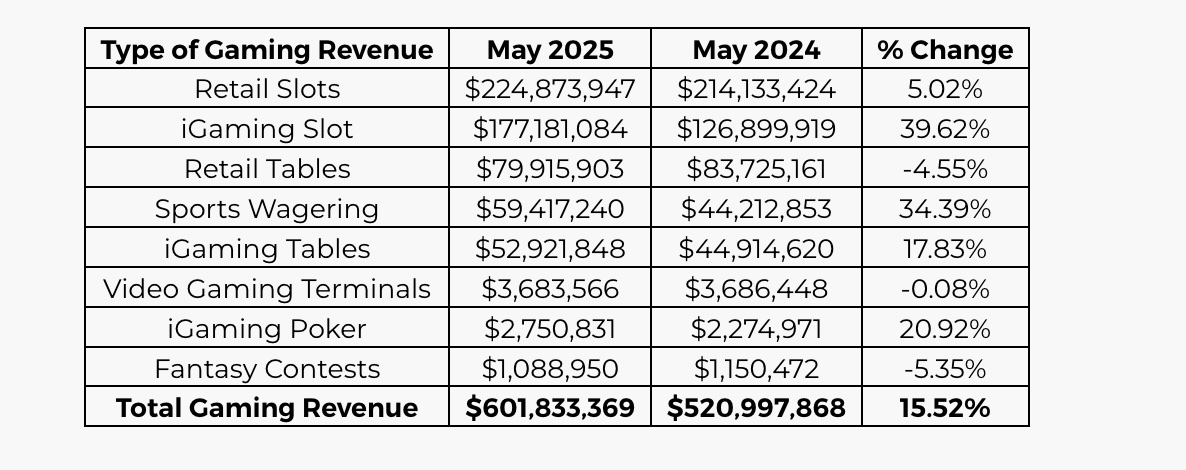
In May 2025, casino games offered online generated $232,853,763, marking a 34% increase from the previous year. Retail slot machines also contributed significantly, reaching $224,873,947, despite a slight decrease in the number of operational machines. Retail table games saw a slight drop in revenue, totaling $79,915,903.
Sports Betting Boom
Sports betting, both retail and online, showcased an impressive growth trajectory.
The total sports wagering handle in May 2025 was $655,358,227, an increase of almost 11% from May 2024. This surge led to a taxable revenue of more than $59,000,000, reflecting an increase from 34% to 39% year-over-year.
Video Gaming Terminals and Fantasy Contests
While video gaming terminals (VGTs) saw a negligible decrease of less than 1% in revenue, generating nearly $3.7 million, fantasy contests revenue dipped by more than 5%, falling to $1,088,950 compared to the previous year.
Despite these minor setbacks, these segments continue to contribute to the overall gaming landscape.
The Economic Impact and Future of Pennsylvania's Gaming Industry
The record revenue in May 2025 resulted in $255,136,529 in tax revenue, underlining the industry's role as a significant contributor to state coffers. With 17 land-based casinos, alongside booming online platforms, the industry is poised for continued growth and innovation.
The PGCB’s effective regulation and oversight have ensured a balanced and responsible expansion, ushering in a new era of gaming in Pennsylvania. As technology evolves, the state's gaming industry will likely continue to adapt and flourish, driving economic benefits and job creation.
Pennsylvania Casino Numbers Expected to Grow
The gaming industry's robust performance in May 2025 highlights its resilience and adaptability. But this may be just the beginning.
Pennsylvania is making a big move in the world of online poker. The state has joined the Multi-State Internet Gaming Agreement (MSIGA), which connects it with other states that allow online poker. This means that players in Pennsylvania can now compete with those in New Jersey, Nevada, Delaware, West Virginia, and Michigan.
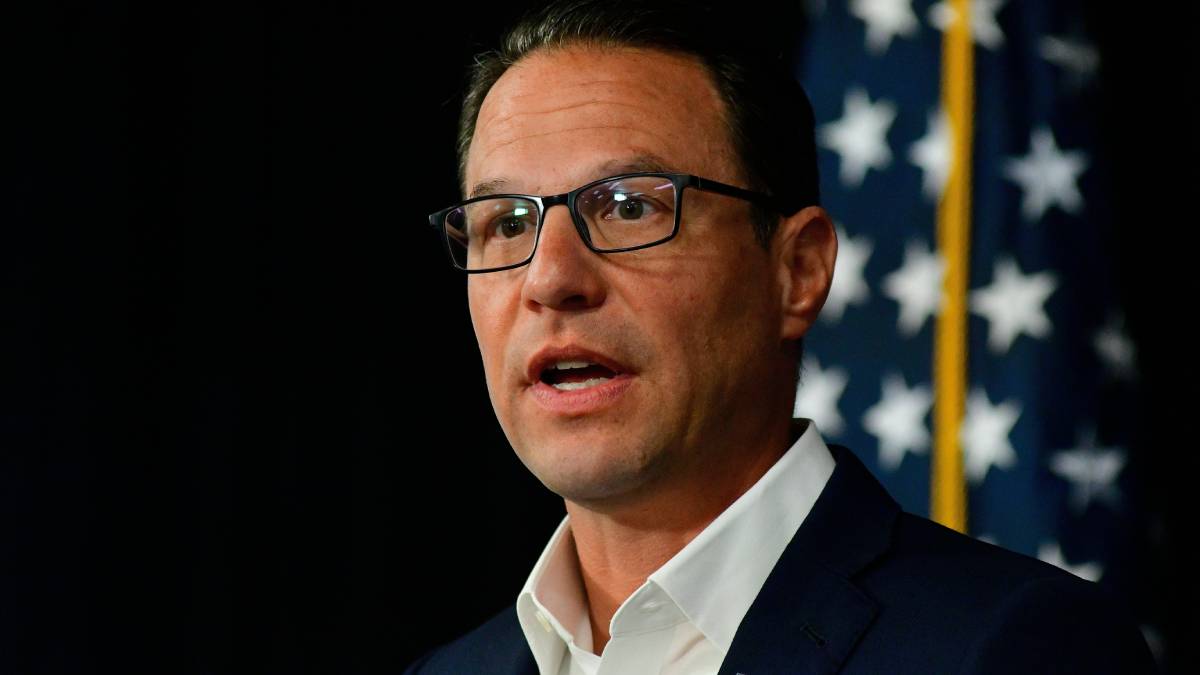
By joining this group, Pennsylvania’s online poker scene is about to get much bigger and better. Players can expect a much larger pool of opponents, making games more exciting and competitive. It’s estimated that the number of players could grow by more than 50%.
Pennsylvania became the sixth state to join the network in April. This is expected to bring more business to the state and potentially boost its economy by attracting more online poker enthusiasts.
In 2022 and early 2023, Pennsylvania was a leader in online poker. However, when Michigan joined MSIGA, it gained an edge and took the lead. With Pennsylvania now part of this network, the state hopes to reclaim its top spot in the online poker industry.
This agreement, although it took some time to finalize, is seen as a positive step forward for Pennsylvania. Players and the state alike are looking forward to the benefits this change will bring.
As Pennsylvania continues to embrace innovations in the gaming sector, we can expect the state to cement its position as a leader in this dynamic and ever-evolving industry.


